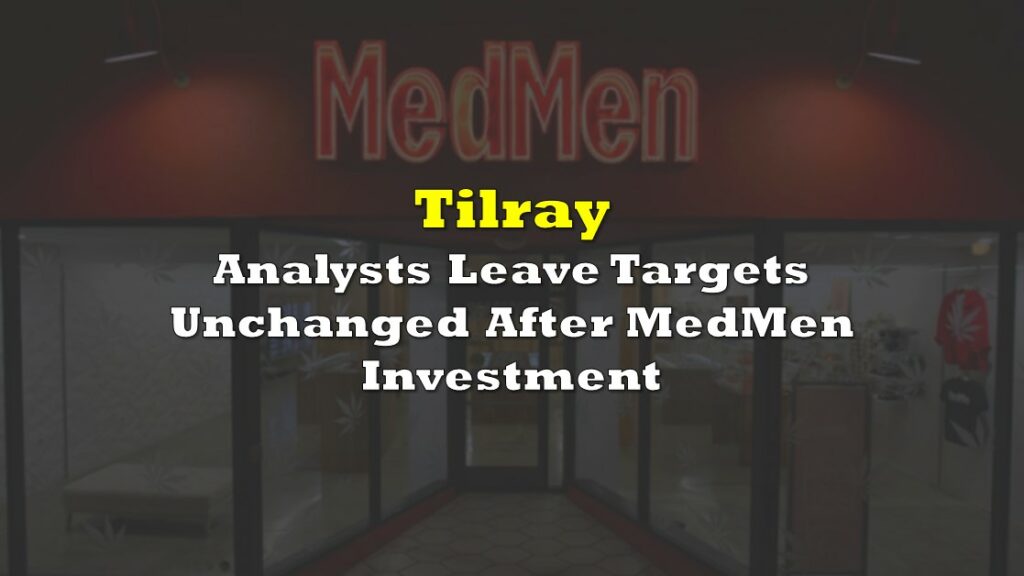There is a common expression in the cannabis industry that “everything is more expensive.”
Even in markets where the industry is legal, suppliers can tend to ratchet up prices due to perceived reputational and legal risks or even just outright refuse to work with cannabis companies. In markets where the industry is not fully legal, namely the United States, this problem is even more acute.
One area where costs have been particularly punitive relative to companies operating in other industries is the cost of insurance. Directors and Officers insurance, (usually shortened to “D&O”), is a type of insurance that is designed to protect a company’s executives from personal liability and is just one example of an insurance policy where cannabis companies pay through the nose.
To give you a sense of just how disparate these policies are compared to other industries; CIBC (TSX: CM), one of Canada’s largest banking and financial services companies with a market cap of approximately $65B CAD paid just $1.6M CAD for $300M CAD in D&O coverage with zero deductible. Contrast that with cannabis operator Aphria Inc., who in 2020, prior to its merger with Tilray (NASDAQ: TLRY), disclosed that they were paying $7.5M USD in premiums for just $35M USD in coverage that also came with a hefty $10M USD deductible. For American multi-state operators, many of whom can barely even manage to get D&O insurance, policies can also be punishing. TerrAscend Corp. (CSE: TER) recently paid $1.8M USD in premiums for just $10M USD in coverage with a $1M USD deductible.
The challenge for cannabis companies is while the costs are brutal, failing to maintain insurance may not be an option. For example, in the case of D&O many seasoned executives will just flat out refuse to join a public company that does not maintain coverage – which in turn can drastically diminish the available talent pool. Insurance companies would argue one of the reasons cannabis companies are paying big premiums for D&O is because they get sued a lot (and they do), however, the punishing costs of insurance in general has led to cannabis companies seeking alternatives – namely, insuring themselves.
We saw this phenomenon in Aurora Cannabis Inc.’s (NASDAQ: ACB) most recent audited financial statements where they disclosed that they had $15M in restricted cash that was being reserved within a recently formed subsidiary, ACB Captive Insurance Company Inc., to cover “self-insurance over property related risks.” In a nutshell, single parent captive insurance companies like Aurora’s are structured as wholly owned subsidiaries that insure their parent, and they are used by some of the largest companies in the world. There are a multitude of reasons why companies establish a captive as opposed to purchasing traditional insurance that go beyond the scope of this article, however, two common reasons that would resonate with cannabis operators include an inability to secure desirable commercial terms and the need for specific types of coverage that might not be available.

HEXO Corp. (NASDAQ: HEXO) is another cannabis operator that also went down the self-insurance path with a slightly different method when they decided to secure D&O coverage for their leadership through a captive cell. With this arrangement, HEXO entered into an agreement with a registered insurer who would hold and manage HEXO’s coverage funds through a legally distinct account. HEXO noted that this move resulted in savings of $2.6M CAD in insurance costs, however, as of HEXO’s 2021-Q3 financial statements, they have had to allocate $30M CAD into the account to maintain their desired coverage.
There are numerous challenges and drawbacks for cannabis companies who want to self-insure and put their own capital at risk, a big one being that the company actually has to put up the money. For this reason, pursuing a practical self-insurance strategy may only be feasible for some of the most well-capitalized cannabis companies. With that in mind, as the industry’s largest companies are aggressively trying to rein in their general and administrative expenses, other players may find it practical to follow Aurora and HEXO’s example.
Information for this commentary was found via Sedar. The author has no securities or affiliations related to this organization or any organization mentioned. Not a recommendation to buy or sell. Always do additional research and consult a professional before purchasing a security. The author holds no licenses.









